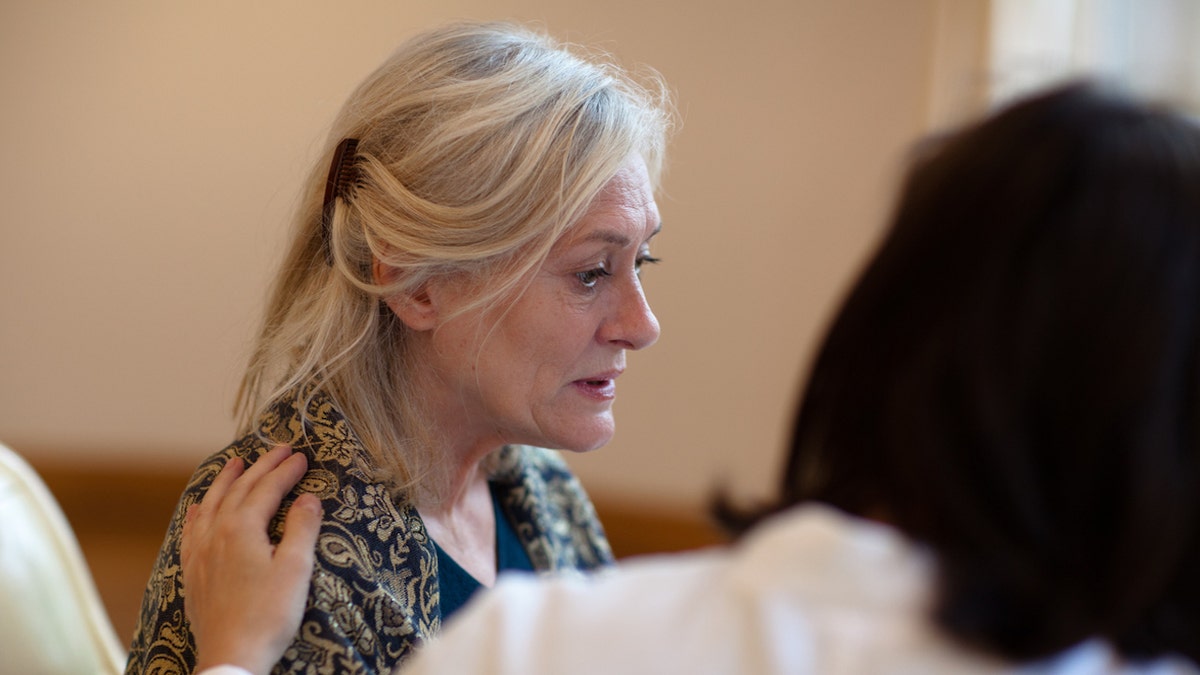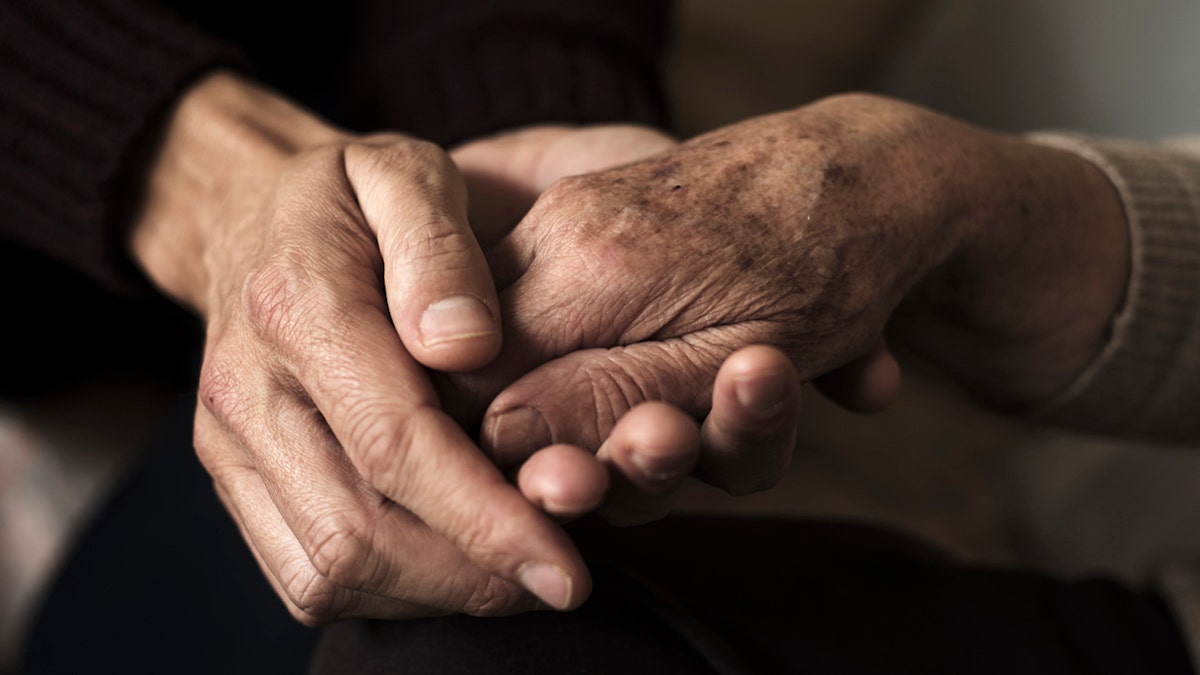Max Lugavere on Alzheimer’s disease: Your diet and lifestyle ‘pull the trigger’
Nutrition expert explains how Alzheimer’s disease personally impacted him as he rallies for furthering research development and medical studies on ‘Tucker Carlson Tonight.’
An estimated 6.7 million Americans are living with Alzheimer’s disease today — about one in every nine people age 65 and older.
That number is expected to nearly double over the next two decades, reaching nearly 13 million by 2050, according to a new report published by the Alzheimer’s Association on Wednesday.
Despite promising advances in the treatment of early-stage patients, the Alzheimer’s Disease Facts and Figures report revealed some key challenges, including lack of communication with doctors and missed opportunities for early-stage diagnoses and intervention.
Population growth fuels Alzheimer’s spike
"The population of people age 65 and older is expected to grow from 58 million in 2021 to 88 million in 2050," Nicole Purcell, DO, general neurologist and senior director of clinical practice at the Alzheimer's Association in Chicago, Illinois, told Fox News Digital in an interview.
MEDITERRANEAN, MIND DIETS SHOWN TO REDUCE SIGNS OF ALZHEIMER’S IN THE BRAIN, STUDY FINDS
Meanwhile, the baby boomer generation has started to reach age 65 and older, putting them at the largest risk for Alzheimer’s, the report noted.

An estimated 6.7 million Americans are living with Alzheimer’s disease today — about one in every nine people age 65 and older. (iStock)
"Thanks to advances in medical technology and healthier lifestyles, people are living longer than ever before," Gary Small, MD, chair of psychiatry at the Hackensack University Medical Center in New Jersey, told Fox News Digital in an email.
"Since age is the greatest single risk factor for Alzheimer’s disease, as our population ages, so does the number of people afflicted with the disease."
Staff shortages and widening gap in care
Neurologists and geriatricians are seen as the best medical professionals to recommend treatments for people with Alzheimer’s, and geriatricians are generally best equipped to provide day-to-day care, the report noted.
(Geriatricians are primary care physicians with a specialized focus on treating older patients, while neurologists specialize in treating diseases involving the nervous system, including Alzheimer’s.)
WHAT IS FRONTOTEMPORAL DEMENTIA, THE DIAGNOSIS BRUCE WILLIS HAS RECEIVED?
A growing shortage of medical professionals, however, poses what seems to many an insurmountable challenge.
"We already have a shortage of health care workers, and this is only going to increase as the population ages and we're keeping folks alive longer," said Dr. Purcell of Chicago.
"As our population ages, so does the number of people afflicted with the disease."
Providing effective care for the nearly 13 million seniors who are expected to have Alzheimer’s by 2050 would require nearly three times the current number of geriatricians, according to the report.
"Ageism, limited reimbursement and other factors have contributed to a workforce shortage of geriatric internists and psychiatrists who specialize in Alzheimer’s disease assessment and treatment," said Dr. Small.
"Without a major shift in public policy to incentivize the training of geriatric specialists, the major health care providers for these patients will continue to be primary care physicians."

Currently, there are seven FDA-approved drugs for Alzheimer’s treatment, five of which target just the symptoms. (iStock)
Dr. Stanley Appel, director of the Ann Kimball & John W. Johnson Center for Cellular Therapeutics at Houston Methodist, has spent more than 40 years studying all types of neurodegenerative diseases, including Alzheimer's.
While he recognizes staff shortages are an issue, he said efforts should go toward developing effective, meaningful therapies for patients instead of just training more geriatricians.
FIRST DRUG PROVEN TO SLOW ALZHEIMER'S WON'T BE AVAILABLE TO MOST PATIENTS FOR SEVERAL MONTHS
"There's no way the health care system in any country — including one as advanced as the U.S. — can deal with such high rates of progression of incidence of disease," Dr. Appel said in an interview with Fox News Digital.
"I believe we need to deal with the disease as opposed to just developing more nurses and doctors to deal with an expanding population of very ill patients."
Advances promising, but early diagnosis key
Dr. Purcell noted that there is very active research occurring on Alzheimer’s all around the world.
There are right now seven FDA-approved drugs for Alzheimer’s treatment, five of which target just the symptoms, the report stated.
Only two of them, aducanumab and lecanemab, work to treat the actual brain changes and biology that cause the disease. Additional treatments are in the research phase.

Providing effective care for the nearly 13 million seniors who are expected to have Alzheimer’s by 2050 would require nearly three times the current number of geriatricians. (iStock)
Although these developments offer some hope for those living with Alzheimer’s and their families, Dr. Purcell said it’s important to know that the medications are intended for use only in the early stages of the disease.
"That means it’s important for individuals experiencing symptoms to get to their primary care physician, to have these discussions and to get a diagnosis," she added.
Many fail to seek help
Only four out of 10 people said they would see their doctor at the first sign of memory loss or other cognitive problems, according to the new report.
"Many older adults believe that their age-related forgetfulness is normal, but early recognition and intervention leads to better outcomes."
"There is tremendous stigma and fear about the diagnosis of Alzheimer’s disease," Dr. Small told Fox News Digital.
"The early symptoms are mild and gradual and often perceived as just normal aging. Many older adults believe that their age-related forgetfulness is normal, but early recognition and intervention leads to better outcomes. Making people aware of the early symptoms is important to motivate them to get help."
PRINCE HARRY SAYS PSYCHEDELIC DRUGS HELPED HIM — BUT WHAT ABOUT THE RISKS AND DANGERS?
One of the most important findings in the report, said Dr. Purcell, is that individuals who experience difficulty with their memory or cognition are not having early discussions with their primary care physicians.
In most cases, she said that doctors generally wait for the individual or a loved one to bring up their concerns during a clinical visit. This highlights the need for improved communication on both sides.
High cost to families
The report states that the collective cost of caring for individuals living with Alzheimer’s or other dementias across the U.S. is expected to reach $345 billion this year — a $24 billion increase from a year ago.

The cost of Alzheimer's care involves both direct medical care of the patient and the costs of family caregiving. (iStock)
"The cost of care involves both direct medical care of the patient as well as the indirect costs of family caregiving, such as work absenteeism and loss of income for the patient, who can no longer hold down a job because of the disease," said Dr. Small.
CLICK HERE TO SIGN UP FOR OUR HEALTH NEWSLETTER
Ultimately, as Dr. Appel noted, Alzheimer’s is a disease of the family — not just emotionally, but also financially.
CLICK HERE TO GET THE FOX NEWS APP
"We need better education for our population of the risk factors and things we can do symptomatically," he said.
"But I'm optimistic that we have therapies coming to help meet this dramatic unmet need."


